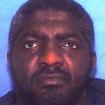 Larry Ruffin Larry Ruffin narrowly avoided the death penalty and served more than two decades in Mississippi prisons for a murder and rape he didn’t commit and died in a prison accident before he could be exonerated. Eight years after his death, DNA testing obtained by Innocence Project New Orleans would officially clear his name.
Ruffin was wrongfully convicted of raping and killing a woman in her Forrest County, Mississippi, home on May 4, 1979. The only witness was the victim’s 4-year-old son, who consistently described seeing one man raping and killing his mother. Ruffin was arrested first for the crime. Two other men, Phillip Bivens and Bobby Ray Dixon, were arrested in the case 18 months later.
The three men gave confessions to police, under the threat of the death penalty. Their confessions were inconsistent with each other and in places, factually inaccurate. Dixon and Bivens pled guilty and testified at Ruffin’s trial in exchange for life sentences. Dixon recanted his earlier testimony and confession implicating Ruffin while on the stand at Ruffin’s trial. Ruffin was convicted by a jury and sentenced to life in prison after a hung jury prevented a death sentence.
Innocence Project New Orleans (IPNO) and co-counsel Rob McDuff—lawyers for Dixon, Bivens and the Ruffin family—obtained DNA testing with the consent of the Forrest County District Attorney in June 2010. Testing was performed on semen left on the victim’s body by the perpetrator and the DNA profile was run through the FBI’s DNA database. The profile from the crime scene excluded all three of the men convicted and implicated another man who was convicted of raping another woman in her home in the same county two years later.
Based on the results, IPNO and McDuff filed motions calling for the three men’s convictions to be dismissed and for their immediate exoneration. Dixon, who had suffered from seizures his entire life, was diagnosed with lung cancer that spread to his brain. He was released on medical parole in August 2010.
In September, Forrest County Circuit Judge Bob Helfrich threw out the convictions of Dixon and Bivens and ordered evidence be presented to a grand jury on the alleged real perpetrator. Because Ruffin had passed away in 2002, his conviction could not be overturned through regular post-conviction procedures. However, on December 14, 2010, he, along with Bivens and Dixon, were officially exonerated when a Forrest County Grand Jury that heard all of the evidence declined to indict the three men.
Dixon passed away on November 7, 2010 while awaiting his complete exoneration.
On February 18, 2011, Circuit Judge Robert Helfrich issued an extraordinary order formally exonerating Ruffin posthumously: "Larry Ruffin is officially exonerated and declared innocent of the crime of capital murder for which he was convicted in 1980 in Forrest County," Helfrich wrote. "That conviction is null and void."
In January 2013, Bivens and the families of Ruffin and Dixon filed a federal wrongful conviction lawsuit against Forrest County law enforcement officials alleging they were beaten and threatened until they confessed to a crime they did not commit. Bivens passed away in August 2014. In 2015, the state agreed to pay $500,000 to the estate of Ruffin and $375,000 each to the estates of Bivens and Dixon. In 2016, Forrest County settled the federal lawsuit for a total of $16.5 million.
|